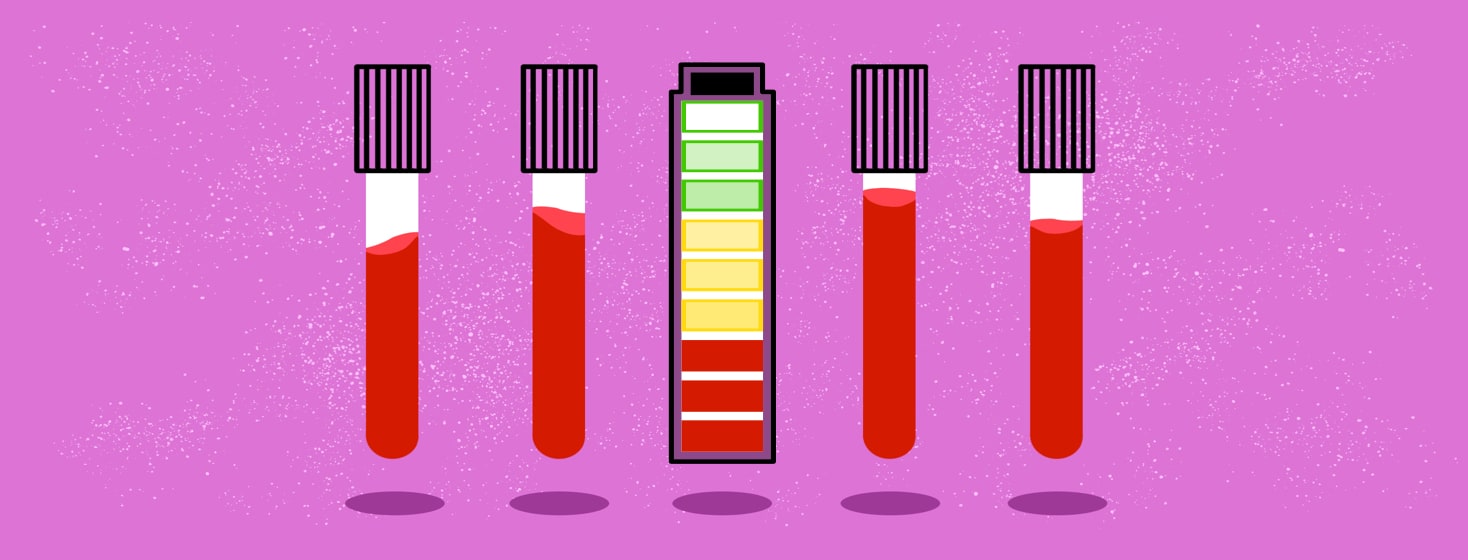More Than Just Fatigue: Managing Anemia with Ulcerative Colitis
Ulcerative colitis has many different faces. Sometimes, it can be explosive, other times sneaky. You might think a flare is under control, but your body could still silently be struggling. That's what I experienced with anemia.
Signs of anemia
A few years after my diagnosis, I thought fatigue, muscle weakness, and even tinnitus were just "normal" for someone with UC. Climbing the stairs left me breathless, my arms burned from fatigue after lifting them, and standing up made me dizzy. There wasn't always the telltale blood in my stool or increased bathroom trips to signal a problem.

After a routine blood test, my gastroenterologist scrolled through the results with me in clinic. Then, he paused. My hemoglobin levels were dangerously low, bordering at the threshold for recommending a blood transfusion. I had a few flares long before this visit with noticeable blood in my stool, but at the moment, my IBD was controlled. As it turns out, the bleeding over an extended period led to my severe anemia.
Looking back, I realized all those "normal" symptoms were actually my body telling me something was wrong. I hadn't connected them to anemia because I didn't know it could cause such a wide range of issues.
Controlling my anemia
After my initial lab work, I received follow-up iron studies, all of which were low. My doctor ordered iron infusions and monitored my levels afterward. Ongoing monitoring and iron supplements became part of my routine.

Today, I feel in control of anemia. The combination of regular blood tests and iron supplementation has been a game-changer. My bloodwork has been consistently normal, and even during flares, I have peace of mind knowing I'm taking the right steps to manage anemia.
Anemia made me feel like a different person in a lot of ways. I had trouble doing things that a normal young adult should do. Simple tasks felt monumental. That's not normal, and now, I'm making sure I know what my normal is.
Newly diagnosed tips
For me, feeling in control of a chronic illness isn't about a complete resolution of symptoms, but about having the knowledge and tools to manage them. It's about learning to listen to my body and advocating for my health. It's about recognizing any small victory, like climbing those stairs without needing to rest. My journey with UC and anemia is ongoing, but I am no longer a passive passenger. I am an active participant, determined to live a full and healthy life.
If you're newly diagnosed with anemia and IBD, here's what I've learned:
- Track your symptoms. By becoming keenly aware of your symptoms of anemia, you will be better prepared to manage it in the future.
- Don't ignore the "normal" feelings: exhaustion, weakness, and even tinnitus can be signs of anemia, even without a visible IBD flare.
- Advocate for yourself: Regular bloodwork can be essential for early detection. Don't hesitate to discuss your concerns with your doctor.


Join the conversation